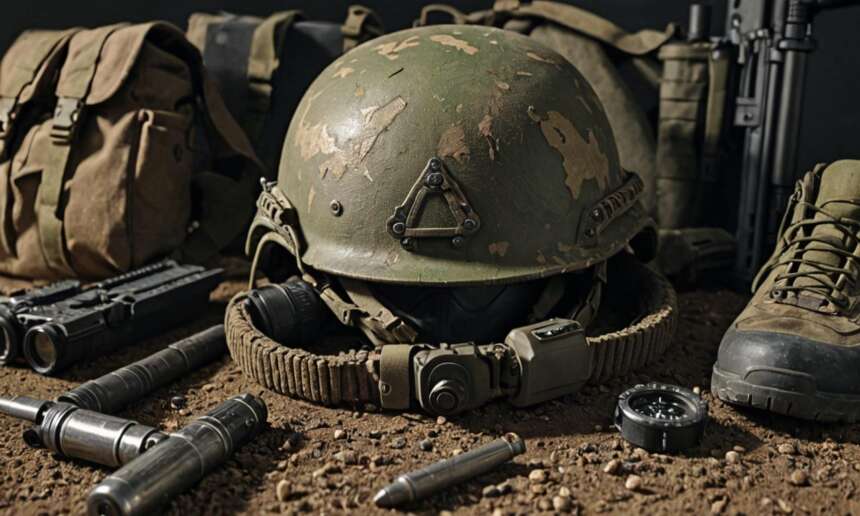In military terms, a sapper is a specialized soldier trained in the art of combat engineering. This role is critical in providing support to infantry units by ensuring mobility, counter-mobility, and survivability on the battlefield.
Origins of the Term
The term “sapper” originates from the French word “sapeur,” which refers to a soldier responsible for digging trenches, tunnels, and other fortifications during siege warfare. Over time, the role evolved to encompass a broader range of engineering tasks in modern armies.
Role and Responsibilities
Sappers are trained to handle a variety of tasks, including but not limited to:
- Building and demolishing obstacles such as barricades, roadblocks, and bridges.
- Clearing minefields and other explosive hazards.
- Constructing field fortifications and shelters.
- Repairing infrastructure damaged by conflict.
These tasks are crucial for maintaining the momentum of military operations and ensuring the safety of troops.
Training and Qualifications
Becoming a sapper requires rigorous training in engineering, explosives, and combat tactics. Many military branches have specialized schools or courses dedicated to training sappers to ensure they have the skills and knowledge needed to perform their duties effectively.
Sappers often undergo additional training in areas such as urban warfare, reconnaissance, and demolitions to enhance their versatility on the battlefield.
Equipment and Tools
Sappers are equipped with a wide range of tools and equipment to carry out their tasks efficiently. These may include:
- Explosives and detonation devices
- Mine detectors and clearance equipment
- Engineering tools such as shovels, pickaxes, and wire cutters
- Protective gear such as body armor and helmets
The specific equipment varies depending on the nature of the mission and the branch of the military.
Integration into Combat Operations
Sappers work closely with infantry units and other combat arms to support military objectives. They may operate independently or as part of larger engineer teams, depending on the scope and complexity of the mission.
During combat operations, sappers often accompany assault forces to clear obstacles and create pathways for advancing troops. Their expertise in demolitions and engineering is invaluable in overcoming enemy defenses and achieving tactical objectives.
In summary, a sapper plays a vital role in the army by providing essential engineering support to combat units. Through their specialized training, skills, and equipment, sappers contribute to the success of military operations and the safety of personnel on the battlefield.
Impact on Modern Warfare
With the evolution of warfare tactics and technologies, the role of sappers has adapted to meet the demands of contemporary battlefields. Modern sappers are not only proficient in traditional combat engineering tasks but also in dealing with cyber threats, improvised explosive devices (IEDs), and urban combat scenarios.
Cyber Engineering
As warfare increasingly incorporates elements of cyber warfare, sappers may receive training in cyber engineering to safeguard military networks, disrupt enemy communications, and defend against cyber attacks.
Counter-IED Operations
Given the prevalence of improvised explosive devices (IEDs) in modern conflicts, sappers specialize in counter-IED operations, employing advanced technology and tactics to detect, neutralize, and dispose of these deadly threats.
Specialized Units and Teams
Within military organizations, there are specialized units and teams dedicated solely to sapper operations. These units often have their unique training programs and equipment tailored to the specific challenges they face in their operational environments.
| Unit | Specialization | Equipment |
|---|---|---|
| Combat Engineers | General engineering support | Explosives, mine detection equipment, engineering tools |
| Special Forces Engineers | Highly specialized operations, including deep reconnaissance and sabotage | Advanced explosives, specialized reconnaissance gear |
| Marine Corps Sappers | Amphibious operations and beachhead construction | Watercraft, underwater demolition equipment |
Frequently Asked Questions
Q: Are sappers only found in ground forces?
A: While sappers primarily serve in ground forces, elements of sapper training and expertise can also be found in other branches of the military, including naval and air force engineering units.
Q: How do sappers differ from regular combat engineers?
A: Sappers are typically trained for more specialized and frontline combat engineering tasks, often operating in close proximity to combat units to provide immediate support during engagements.
Q: What are the physical and mental requirements to become a sapper?
A: Sappers must meet rigorous physical fitness standards and demonstrate aptitude in technical skills and problem-solving abilities. Mental resilience and the ability to perform under pressure are also essential qualities for sappers.




